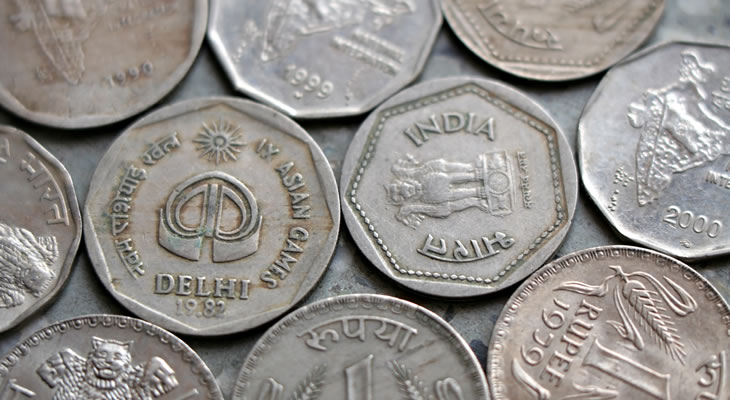The Pound has risen by 0.4% against the Rupee today but may be in for a period of heavy losses if UK inflation continues to move in the opposite direction to wage growth.
March 21st brought a forecast-beating rise in annual UK inflation from 1.8% to 2.3% in February; this resulted in the Pound rallying strongly against the Rupee.
The reasoning behind this was that the Bank of England (BoE) was more likely to raise UK interest rates in response to rising inflation, although BoE Governor Mark Carney was more reserved on the matter. Notably, the Governor responded to the news by stating;
‘Look, (it’s) a single data point. You never overreact to a single data point’.
Another factor dragging down the likelihood of a near-term rate hike has been UK wage growth, which has steadily slowing since the start of the year.
With a wage squeeze now realised, raising interest rates would only worsen the situation for mortgage payers and borrowers.
This puts the BoE in a difficult position, as if wages continue to slow and inflation remains aggressively high then UK citizens will continue to suffer and any rate increase will only worsen the situation.
This could mean that future UK inflation rate rises have a negative effect on the Pound to Rupee exchange rate, as they would only further highlight the BoE’s inability to act on a bad situation.
When it comes to Rupee-influencing events, the state of national infrastructure is a factor that may have an increasingly negative effect on the INR GBP exchange rate in the future.
Analysing the issue, CB Capital Partners Chief Investment Officer Henry To has stated that;
‘According to a June 2016 McKinsey report, India currently has an infrastructure investment gap equivalent to 0.5% of GDP; in addition, 25% of the country’s households lack access to electricity: 6% to clean water, and 82% to internet access. Because of the relative lack of infrastructure investments in the agricultural sector, two-thirds of the country’s cultivated land is still dependent on monsoons, rather than through groundwater-based systems or other means of storage’.
To summarises that;
‘Unless India spends even more to upgrade its highway and agriculture infrastructure and to create a more reliable power grid, its status as the world’s fastest-growing major country will not be sustained’.
Signs that the Indian economy is falling behind international competitors is unlikely to have a positive impact on the Rupee, given India’s close competition with expanding neighbours such as China.
Recent Interbank GBP INR Exchange Rates
At the time of writing, the Pound to Rupee (GBP INR) exchange rate was trading at 81.96 and the Rupee to Pound (INR GBP) exchange rate was trading at 0.01.


Comments are closed.